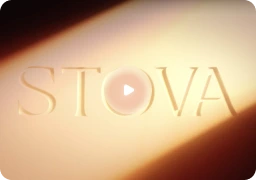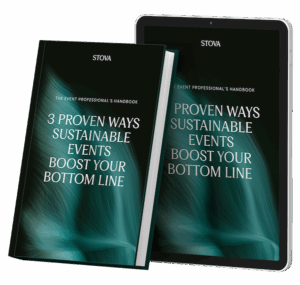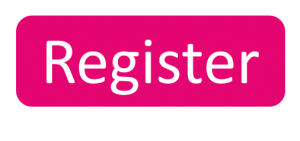Questions Answered: Tips From a TEDx-pert
May 11, 2017
In case you didn’t already know, there is a huge difference between managing event content and curating it. Lucky for us, Fenella Kernebone, TEDxSydney’s Head of Curation, had us covered during her live webinar on May 9. If you missed it, you can watch the on demand version here. We didn’t have time to answer everyone’s questions, so read on to learn more about how TEDxSydney plans their content.
Q You mention pre-recorded film back-up. How can I use this and what is involved to prepare it?
A: At TEDxSydney, there are four pillars to our event talks, performance, food and film. Our film program is a key part of our day. In late 2016, we put a call out to filmmakers around Australia to submit their ideas, we then created a shortlist and today 10 filmmakers are in the final stages of preparing their short film to screen at TEDxSydney2017. These films are beautiful, bespoke pieces. The great thing about pre-recorded content such as this, is that it can be programmed at particular times during each session where there may need to be other kinds of activity on the stage. For example, if you’re setting up for a performance or for a panel, then this may be a good time to screen a piece of video content. Anything you screen however, must be cleared for use. If you are making content yourself, then this can take many forms. You may choose to hire a production company to create short films in advance of your event that profile your speakers. It could be short interview packages with key people who may or may not be appearing on the stage, featuring their workplace or talking about an issue pertinent to your event. Good content takes time and may not be cheap. but it can be worth it.
Q
Other than having interesting topics and speakers, how do you make every event experience different?
A: The team of organisers at TEDxSydney (driven by our licensee Remo Guiffre, the leadership team, core team and the broader TEDxSydney community) work very hard to create a day that is an experience for the attendees. From registration to evening cocktails, everything is planned and considered. From the way our audience interact in the breaks, the enthusiasm of the volunteers (over 100 volunteers), music and activities throughout the day all make the experience of TEDxSydney one to remember. And let’s not forget the conference tote bag, signage, program, lanyards; all of these things contribute to the experience. It is about community and collaboration, conversation and the exchange of ideas. We try to get people involved throughout the day; there’s activations at lunchtime, things to talk about and do and last year, there was even a record breaking attempt for the most people playing the spoons…this year. Well, wait and see!
Q Whats do you lock in first; your favorite venue, primary speaker, or best fate the works for your staff and speakers?
A: TEDxSydney is a very large event so the venue and the date is locked in first. As the event is annual however, the process of sourcing speakers happens year round. If a speaker wasn’t available for the date we had, which has happened, we simply needed to move on and find someone else more suitable. But it really depends on your event. It you want to hold an event and it is all about that primary speaker, then it would be best to lock them in. Get a few possible dates from them, find a venue, ensure you have enough time to plan and then continue from there. However, for a full day of content and for a large audience, you need your venue and your date and then everything else must follow. Public holidays, school/university holidays and any other significant events around that time are also good to think about when planning for your event.
Q How much do you control what your presenters say?
A: We don’t control what the presenters say, their talks are their talks. But we provide guidance, whether it is helping a speaker hone their message so that it is clear, advising on structure, tone or storytelling. That is where we offer curatorial advice. We are like an editor and some speakers desire or need more help than others. Some speakers don’t need it at all and are very experienced, but doing a TEDx talk is quite different then preparing for a keynote at a conference, so we are there to help their talk to be as strong as it can be.
Q How do I get my organization to give me the scope and budget to be a curator and not a program filler?
A: Since TEDxSydney is an independently organized program, the speakers participate because they want to and it is a global rule that our speakers are not paid for their contribution. I am lucky that I am part of a global community that speakers want to be a part of so there is a passion there. So encouraging your organization to give you the scope and budget comes down to creating the vision for your event and pitching the program to your organization. You can do a comparative analysis by showing the “content filler” compared to another speaker who speaks passionately while also sharing some examples. So it’s really about sharing your ideas with management and hopefully that will filter down to some dollars for you. This is truly a fine art.
Q When reviewing speaker bureaus, how do you know which ones are high quality?
A: This is page one: you research. That is what a curator does. You look up the speakers and watch every interview or session that they have done and analyze it. I find what interviews that they have done on the radio or during a podcast and you can hear the talent. If they are great talent, you can hear it. But that’s how you do it, you have to watch and you have to listen. Bureaus may not be keen on you doing that, but if you want the best quality performance for your talk, that additional research will make all of the difference. You want a different point of reference for your talks, so it may also be beneficial to go through your previous schedules and seeing who has already spoken at your events and checking that those people have not already spoken on the same topic.
Q How long do you allow from beginning your research to program confirmation?
A: TEDxSydney is quite unique in that we try to confirm everything far in advance. So after last year’s event in May 2016, I started working with our curatorial team two months later to work on this year. Then we had our initial meetings and locked down our speakers about 3 or 4 months ago. You want to give your speakers at least six weeks so they have more than enough time to rehearse. This is so they can get to know their talk and rehearse their drafts so that when they are on stage, it doesn’t look like they are remembering something but that it’s a second skin. Having that preparation planning is really vital.
Q How do I volunteer for TEDxSydney?
A: Get in touch with us by going to following sites:
https://tedxsydney.com/about/faq/#volunteer
https://tedxsydney.com/about/contact-us/
Weren’t able to attend the live webinar with Fenella? No problem! Register now and get the recording where Fenella of TEDxSydney discusses the tools that will help you transform your role from content manager to curation while also enhancing your content program to impact your overall event.
Whether your event is virtual, hybrid, or in-person, enhance your attendee’s journey with an event ecosystem built for your audience. Ready to walk through Stova's event technology solutions? Schedule some time with us today.



